
Over the past few years, miniature food pantries have sprung up all around the Des Moines metro. These small boxes, stocked with nonperishable food, are available any time of day for anyone in need—a small-scale way to help combat food insecurity in the community. Waukee residents will soon see these Little Free Food Pantries in their neighborhood as well, thanks to the recently-graduated Waukee Leadership Institute Class of 2020.
The Waukee Leadership Institute began in 2006 as the brainchild of Waukee’s former mayor Bill Peard and co-founder Larry Lyon. Both men were serving on the Waukee City Council at the time, and according to Peard, both thought the city of Waukee was in need of a way to “keep the leadership pipeline full”—not just for elected officials, but for community leaders, as well. The two created the program as a way to develop leaders through education, networking, mentoring and roundtable discussions.
A significant amount of time and effort went into developing the Institute, which is a 501(c)3 nonprofit. “It was a labor of love for a lot of people,” said Peard. “It’s truly a volunteer effort.” The founders took some cues from other leadership institutes in the area, but ultimately, Peard explained, “We kind of just jumped in the deep end of the pool and figured it out from there.” The Institute’s first class graduated in 2007.
Class members apply online each year over the summer and meet on a monthly basis from September to April. Each year’s class is capped at 20-25 people. “We feel that is a good size,” said Institute Board Director Terry Snyder, an Institute Class of 2012 graduate herself. “It’s not too big, not too small.”
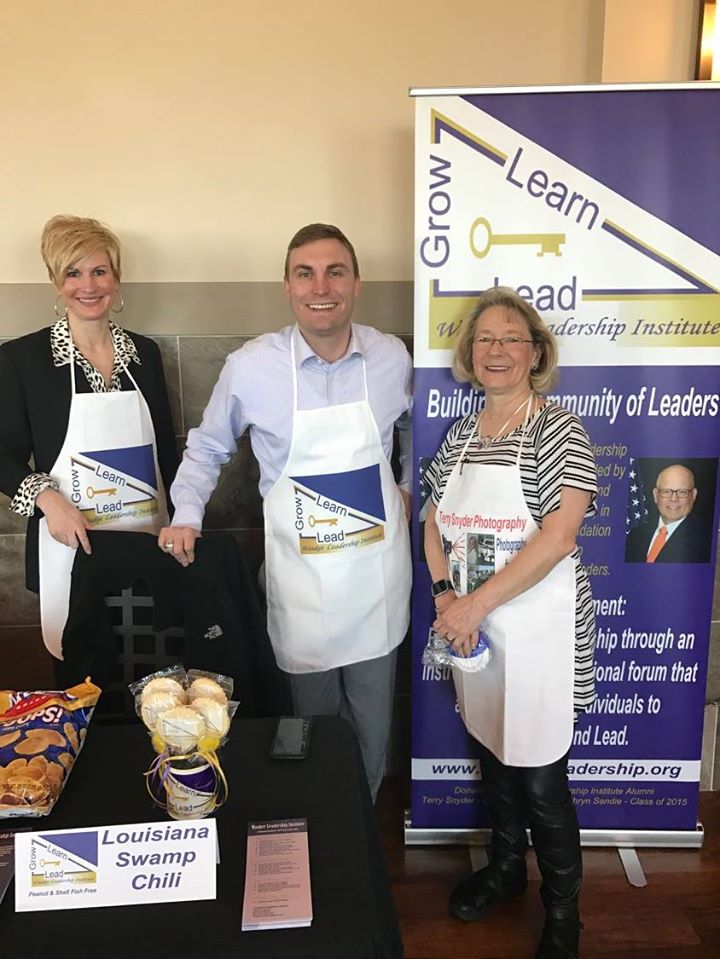
Class of 2020 graduate Gretchen Stanger, who works as the Youth and Family Program Director at the Waukee YMCA, became interested after hearing about a coworker’s experience in the program the year before. “[She] shared her experience with me and it piqued my interest,” she said. Larry Hingst, also a 2020 graduate, had just accepted a new role as a sales manager at Gilcrest/Jewett Lumber Company in Waukee when he enrolled. “I was asked to enroll…about one week before it was going to start,” he said.
Fellow classmate April Samp, who worked as the News Director and creator of the We Are Iowa brand at WOI-TV Channel 5 and currently owns her own producing and consulting company, first heard about the Institute on the golf course. “I first heard about WLI from current President Rick Kyser in a fortuitous meeting on the Sugar Creek Golf Course,” she explained. “I was paired with Rick and his wife for a round of golf, and he talked to me about the program.”
Despite varying levels of familiarity with the Institute and with the curriculum, class members quickly realized they had made a good decision. “I quickly felt it would be a good fit, both personally and professionally,” said Stanger.
Hingst agrees. “Going in, I really did not know a lot about the program,” he said. “I realized this was going to be more fun and interesting than I had anticipated!”
Although class content has been refined somewhat over the years, the core components of the curriculum remain the same. According to Snyder, each class “learns how the Waukee city government works, how our economic development department attracts new business to Waukee, and how the school district handles the population growth of the city.”
Waukee’s mayor and city administrator are regular annual presenters, as is Waukee’s police chief, John Quinn, whose Introduction to Leadership class has become a staple on the schedule. Snyder commented that the curriculum has been enhanced over time, as well. “Former Governor Tom Vilsack presented for the class of 2020, and he is scheduled to present again [for] the class of 2021,” she explained.
A session on state government, presented by Iowa Senator Charles Schneider and Representative Kenan Judge, is also on the schedule for next year. The Institute has also added a class where representatives from a small, medium and large business in Waukee present to class members on their leadership style and how the size of their business impacts the way they lead.
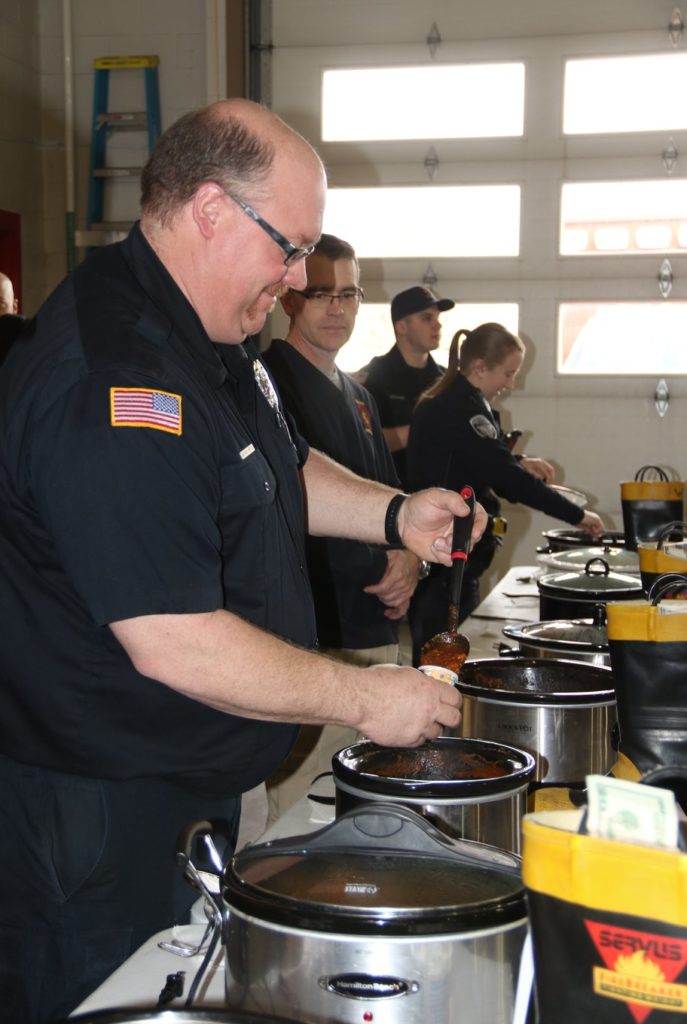
Graduates have high praise for the class content and presenters. “I appreciated how carefully the topics and presenters were planned. It truly made for an immersive experience,” said Stanger.
Hingst said he learned a lot about the operations of the city government and was impressed by what he heard from presenters. “One of the things that really stood out [was that] the leaders that we have in our community really put the city first in their decisions,” he said. “That was refreshing to see.”
The capstone each year is a final project, the aim of which is to enhance the Waukee community. “We encourage the class to think outside the box and look around town and see what they think is needed,” said Snyder. Class members pitch ideas to one another and talk through the logistics of each one. Eventually, the class as a whole makes the final decision on which project they would like to pursue.
Past class projects have included the construction of the amphitheater in Centennial Park (Class of 2013) and the installation of bike ramps on Waukee’s bike trails (Class of 2016). After talking through numerous pitches, the class of 2020 decided to tackle food insecurity in Waukee by working with Waukee Area Christian Services (WACS).
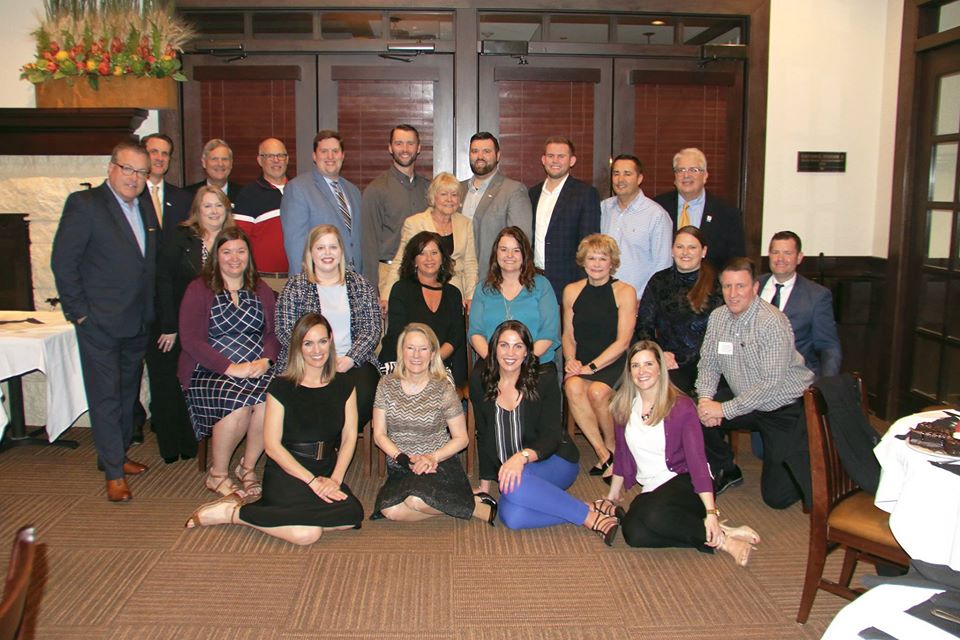
A nonprofit outreach ministry supported by Waukee-area churches, WACS operates a food pantry, a free medical clinic, a community garden and additional seasonal and children’s programs that serve all of Dallas county and into the surrounding area, as well.
The project aimed to raise awareness in the community about food insecurity and elevate the impact of WACS. For starters, the group created a marketing toolkit for WACS to use to create marketing materials to reach out to volunteers, donors and clients. According to Samp, the group also engineered “a self-functioning…food donation network.”
This network is built around local businesses that agree to host month-long donation drives and then challenge another business to do the same in another month. “We also created a database of potential and current donors for [them] to use,” said Samp. Another major part of the marketing campaign was a short video the group produced for WACS to increase awareness of the services they provide. According to Samp, the video explains “not only what they provide, but also how people can help.”
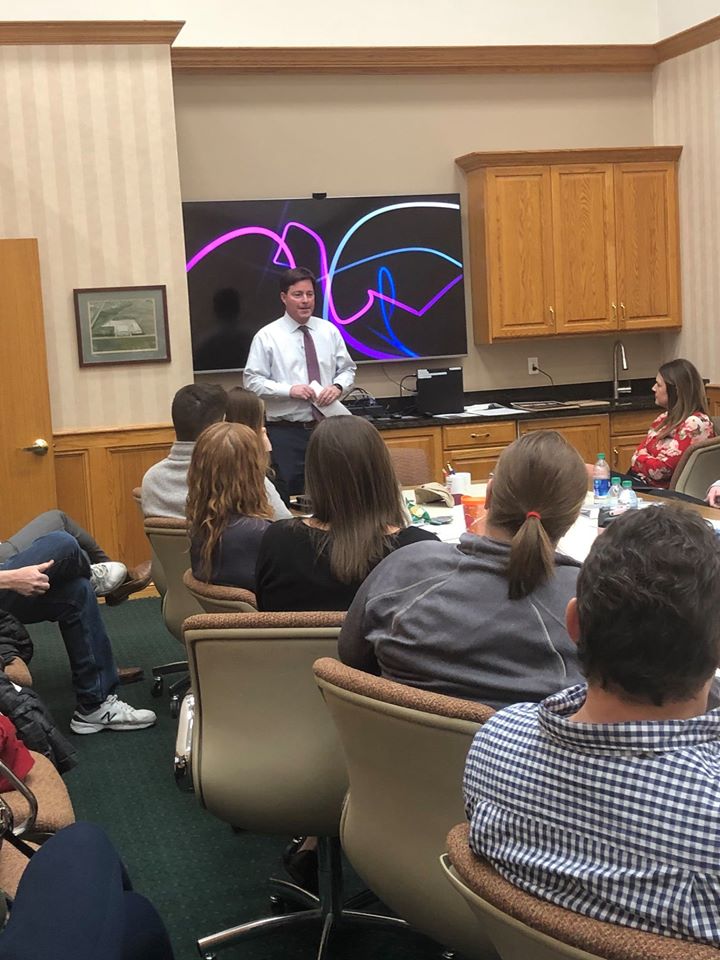
The class also solicited materials and labor from local businesses to construct roughly half a dozen Little Free Food Pantries, which will be placed throughout Waukee in the coming months. The pantries provide “a way for people to get the basics without having to go into WACS,” said Samp. The group also aimed to raise funds for WACS, and although some of the group’s progress fundraising was paused due to the COVID-19 pandemic, they still managed to raise over $4,700 by the time their efforts were slowed in March. “I am pleased our class remains committed to completing the project we began in September and I’m elated to witness our efforts take shape in the community,” said Stanger.
The impact of the Waukee Leadership Institute has certainly been felt throughout the city of Waukee over the years. “I think the class projects have made a great impact on the community,” said Snyder. She also points out the great leadership the Institute has produced, such as Class of 2007 graduate Chad Airhart, who is currently the Dallas County Recorder, as well as current City Council member Anna Bergman, a Class of 2017 graduate who recently ran for Iowa State Representative.
Peard agrees. The Institute has become a “definite part of the community,” he said.
That impact is felt by the Institute’s graduates, as well. Snyder enjoyed working with the Class of 2020. “They were all very professional,” she said, adding that she appreciated “their enthusiasm for the class and the project.”
Stanger explained, “The classmates were a delightfully diverse group of welcoming, goal-driven, inspirational, and community-focused leaders.”
Samp agrees. “I enjoyed collaborating with so many smart and caring people,” she said. “I appreciated the kind hearts and strong work ethic of the group.”
Hingst was inspired by presenters’ knowledge and dedication. “Waukee has some tremendous leaders, in our government and in the private sector,” he said. “They take great pride in our community, and this is awesome to see. It inspires me to get more involved.”
That impact was felt by Samp, as well. “My son and I are planning on volunteering more regularly at WACS,” she explained. “It has enriched our family life, as well.”
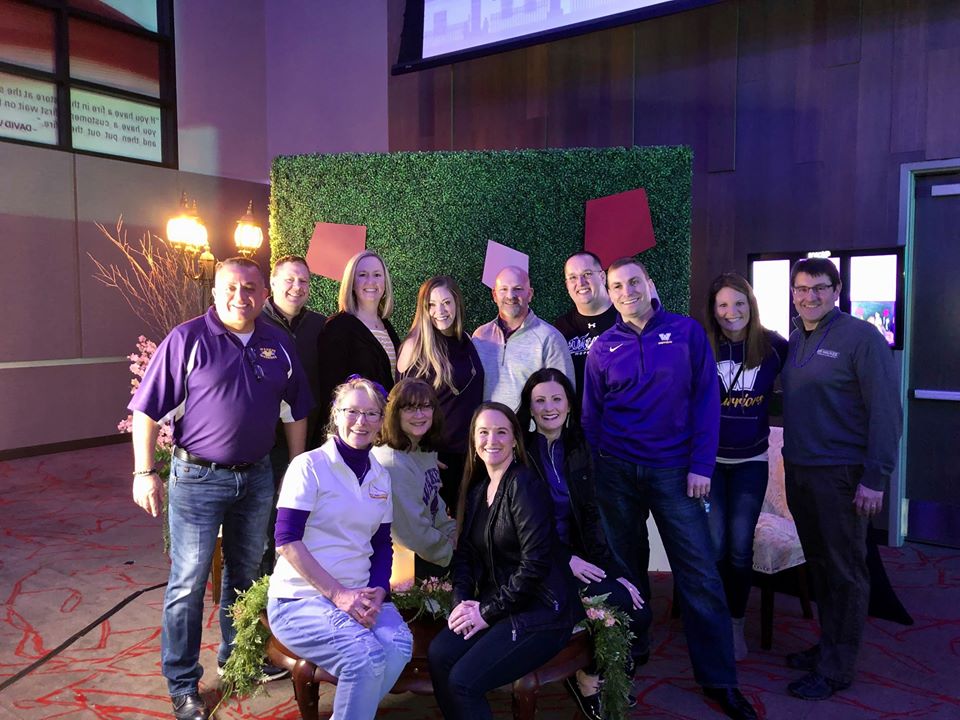
The Little Free Food Pantries represent the culmination of an experience that enriched the Class of 2020 not only professionally, but personally—an experience that has carried through to their lives after graduation. Stanger perhaps best sums up the impact: “I have developed invaluable relationships with my classmates and local business leaders, gained insight about myself, become more involved with the Waukee community, strengthened my leadership style and reinforced the ambition to be the most authentic version of myself.”